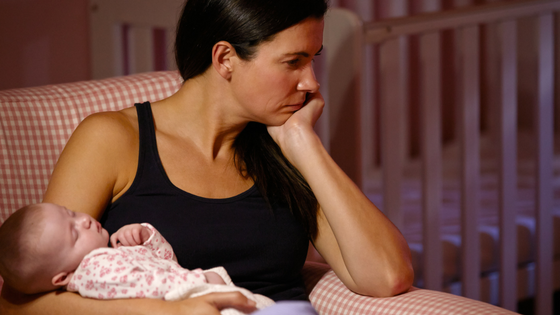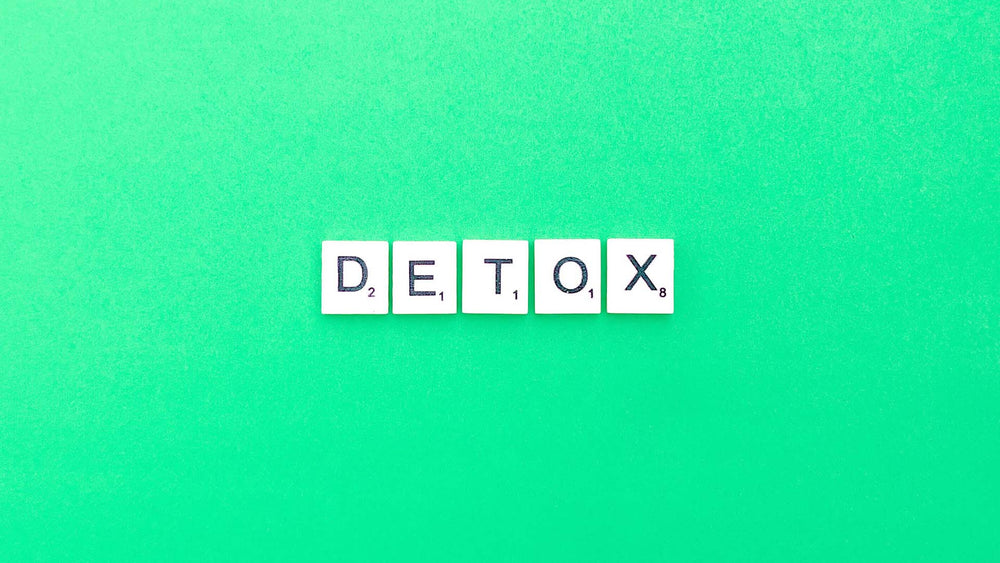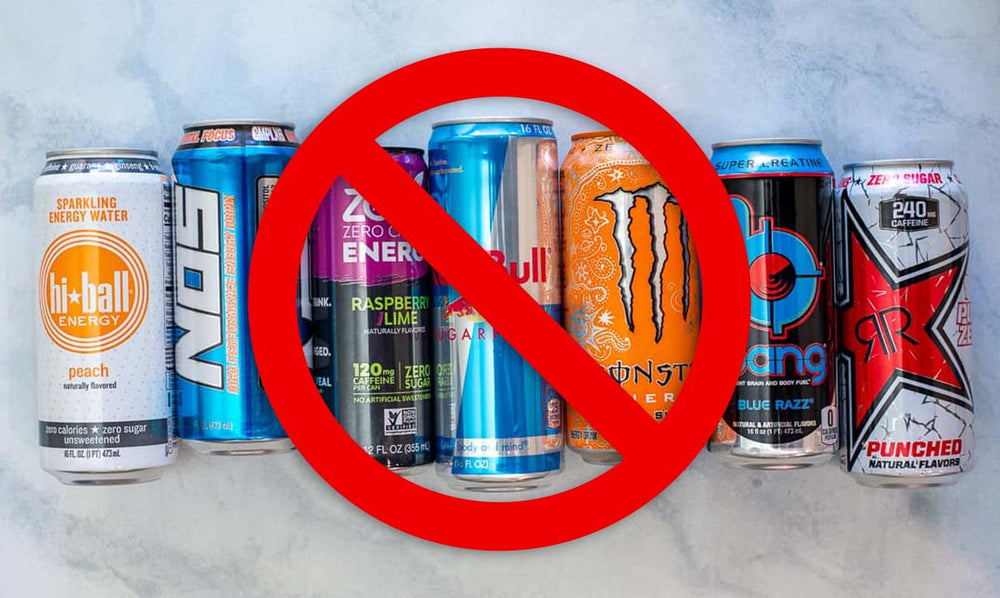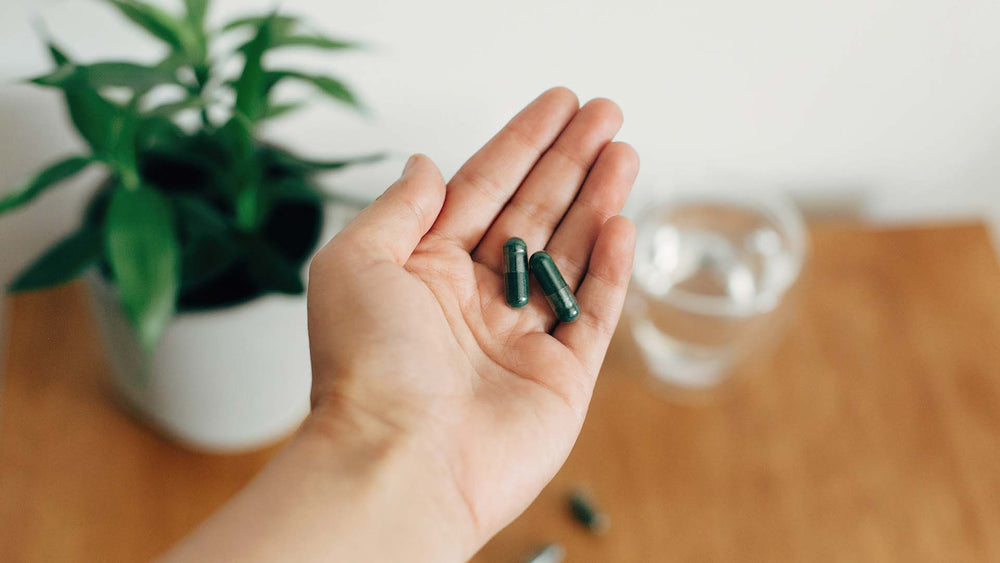According to the National Institute of Health, 6.7 per cent of American adults, or 16 million people in the U.S., suffer from major depression, Major, or clinical depression, is treated with counseling, lifestyle changes, and/or antidepressant drugs.
Sadness and clinical depression are different. We all get the blues from time to time. If you're feeling sad over some temporary situation in your life (or maybe you just heard a sad song), you may just have the blues, which pass quickly. Or you may have an “in-between” type of depression known as situational depression. This sadness doesn't merit the same treatment as clinical depression, but it's more serious and longer-lasting than the blues.
Buy Happy Girl Mood Enhancing Supplement to Feel Better Naturally
HAPPY GIRL helps you to feel calmer, more energetic, and promotes an overall feeling of well-being.
What Are Some Causes of Situational Depression?
Situational depression is caused by what psychologists call a triggering event – the loss of a job, an accident, the death of a loved one, or a relationship break-up and other life-changing events.
You'll feel blue for a few weeks or even a few months, but you'll be able to go about your daily business. You may not feel great, but you'll go to work, take care of your family and run errands.
When you're blue, you might spend a day in bed watching Netflix instead of hanging out with friends, or procrastinate about running errands. When you're clinically depressed, lethargy and hopelessness take over, and one day in bed can turn into several days over the course of a month.
It's important to receive treatment for situational depression. If left untreated, it can lead to major depression or substance abuse.
How can you tell the difference between clinical depression and “the blues”, also called adjustment disorder by psychologists. Here are a few symptoms of situational depression:
- Listlessness
- Inability to concentrate
- Crying bouts
- Withdrawal from family and friends
- Loss of interest in normal activities
- Suicidal thoughts
Major, or clinical, depression is also defined by the same symptoms as situational depression. A person with clinical depression will experience the symptoms in greater intensity and on an ongoing basis. They may totally withdraw from activities they previously enjoyed and shut out family and friends permanently.
Clinical depression is severe enough to interfere with all your daily activities. It may be caused by a chemical imbalance in the brain or painful life events. Ongoing depression can change the way your brain and body work and result in destructive thought patterns.
When you lose your job, it creates a trickle-down series of depressing situations. You may not have enough money to go to dinner with friends or socialize; you may not be able to pay your rent on time. These additional events will depress you even more.
The new situations stem from a triggering event – you lost your job. Once you get a new job, everything's normal again. Aside from playing catch-up with bills, you can resume your normal routine.
Symptoms of situational depression include:
- Skipping school, work or social activities
- Feeling nervous
- Changes in sleeping or eating habits
- Heart palpitations, stomachaches, headaches
- Feeling tired all the time
Talk to friends and family. Start a journal to express your feelings. See a therapist to discuss what's bothering you and find coping mechanisms for the stress and sadness. Handling and moving past situational depression takes time –and the support of friends and family.
People usually get better six months after a triggering event. If your situational depression is caused by an ongoing event like unemployment or relationship problems, do as much as you can (with the help of family, friends and counselors) to solve those issues. As with physical illness, situational depression won't entirely disappear unless you treat the cause as well as the symptoms. Figure out what you need to do to change the underlying cause of situational depression.
Buy Happy Girl Mood Enhancing Supplement to Feel Better Naturally
HAPPY GIRL helps you to feel calmer, more energetic, and promotes an overall feeling of well-being.
Does Your Job Give You the “Blues” – Or Is It Something More Serious?
Everyone gets stressed or sad about on-the-job matters once in awhile, but if it's ongoing, it's time to address the issue before it turns into full-fledged depression.
If you usually get along with your boss and co-workers, but a disagreement or other incident has caused a problem, there's a good chance all parties involved will be able to move past it. When the mere idea of going to work makes you anxious or depressed on a daily basis, you need to get counseling – or another job.
Work stress can do more than make you anxious; it can lead to major depression if left unchecked. Mental illness disability claims increased by 10% in 2012 and account for a larger percentage of long-term disability claims. Depression has become a leading cause for loss of work productivity. The heightened pace of technology in the workplace, downsizing, rapid changes in consumer tastes and trends, and the 24/7 internet sales cycle lead to anxiety– and anxiety often leads to depression.
The Partnership for Workplace Mental Health offers resources for employees and employers that can help identify and treat job-related depression and stress. You need to identify what is bothering you about the job – is it your workload, an abusive boss, demanding clients or nasty coworkers?
To maintain happiness in the workplace and in your life, you need to have a job that's the perfect fit for your talents and personality. Underemployment, shift work or a dangerous or hostile work environment can cause you to become depressed (or exacerbate underlying depression from other causes).
Contact your company's employee assistance program if you need counseling for on-the-job depression. Changing jobs may seem like the perfect solution, but you want to make sure your new workplace is a good fit for you. It's important to talk to a counselor to determine why your job depresses you and how to avoid similar situations in the future.
Buy Happy Girl Mood Enhancing Supplement to Feel Better Naturally
HAPPY GIRL helps you to feel calmer, more energetic, and promotes an overall feeling of well-being.
How is Clinical Depression Diagnosed?
When depression lasts a long time and becomes severe, with constant suicidal thoughts and other dangerous symptoms, you may have clinical depression.
Your doctor will conduct a physical exam and ask you specific questions to diagnose the condition. He or she will look for the following emotional and mental problems:
- Depression which lasts all or most of the day, everyday
- Changes in appetite and weight gain or loss
- Insomnia or oversleeping almost every day
- Fatigue or listlessness
- Suicidal thoughts, including attempts and plans to commit suicide
- Inability to concentrate
People with clinical depression may also avoid eye contact with others, have slowed-down speech, pace, wring their hands or bite their nails. They may appear to be preoccupied or uninterested when others speak to them.
The doctor will take down your family's medical history as well as your own to rule out hypothyroidism or other physical causes.
Certain prescription medications, such as benzodiazepines, corticosteroids, anticonvulsants, statins, calcium-channel blockers and beta-blockers can contribute to depression. Elderly people on these medicines are particularly at risk of depression.
Clinical Depression Treatment
Treatment for clinical depression varies between patients. Talk therapy, behavioral therapy, diet and exercise and prescription anti-depressants are all used to treat depression.
Prescription anti-depressants have many side effects, some of them minor, and a few life-threatening. Serious side effects of the antidepressant Zoloft, for example, include hallucinations and tremors. Rare and dangerous side effects include psychosis, suicide, drug dependence, sleepwalking and conversion disorder. Most SSRIs have similar side effects.
Alternative Therapies
Alternative therapies for depression may work for many patients. Whether you have situational depression, clinical depression, or a simple case of the blues, alternative therapies can make you feel better.
Depending on the severity of the patient's depression, natural treatments can be used with antidepressants or instead of them. If you've been diagnosed with clinical depression, always check with your physician before starting any alternative therapy.
Yoga
Yoga consists of breathing and stretching poses designed to calm jangled nerves and soothe muscles. Like running and other physical exercise, yoga boosts endorphins, feel-good chemicals in your brain. Practicing Iyengar yoga, along with deep breathing exercises, twice a week significantly reduces depressive symptoms according to a study conducted at the Boston University School of Medicine.
Buy Happy Girl Mood Enhancing Supplement to Feel Better Naturally
HAPPY GIRL helps you to feel calmer, more energetic, and promotes an overall feeling of well-being.
Yoga and deep breathing improve the autonomic nervous system, which helps your brain work better. Iyengar yoga is only one of several types of yoga. You can also try Hatha yoga, Ashtanga or Vinyasa yoga to loosen stiff muscles and create harmony in your mind and body.
Exercise
Like yoga, working out at the gym, walking, jogging, playing tennis and any other form of exercise helps produce endorphins. You've probably heard of the term “runner's high”, but any form of exercise can make you happier and bring about a euphoric feeling.
Endorphins also reduce your perception of pain, much like morphine.
Exercise also offers the following health benefits:
- Increases energy
- Reduces body fat
- Builds stronger bones
- Lowers blood pressure
- Strengthens muscles
A study published in Psychosomatic Medicine showed that clinically depressed patients who exercised regularly had lower depression scores than their sedentary peers. If regular exercise can make people with clinical depression happier, it can certainly reduce situational depression or the blues.
Massage
Massage treats arthritis, sports injuries and can help relax you. Research shows that depressed teens who received massage therapy had a reduction in the stress hormone cortisol and experience less anxiety and depression. Massage alone may ease the blues or even situational depression, but it shouldn't be used as a standalone treatment for clinical depression.
Acupuncture
The centuries' old practice of healing the body by placing fine needles into specific points on the body, acupuncture helps correct imbalances in the body by stimulating chemicals that reduce pain. A review of clinical applications of acupuncture for depression, published in the Canadian Journal of Psychiatry in 2012 concluded that acupuncture is beneficial to treat depression, either alone or in addition to antidepressants.
Diet
Eating fresh, whole foods does more than help you lose weight. An Australian study shows that a healthy diet can improve your mood if you have moderate to severe depression. The study recruited 67 people on antidepressants and/or in therapy.
Half of the people in the study went on a modified Mediterranean diet (with no daily calorie restriction) and met with a nutritionist once a week. The other half ate their usual unhealthy diet and attended a social support session once a week.
The Mediterranean diet consists of fish, fresh fruits and vegetables, olive oil, nuts, and a small amount of red meat, poultry and dairy. It is the traditional diet followed by people in Greece, Italy and other countries that surround the Mediterranean Sea.
After 12 weeks, the participants on the Mediterranean diet showed considerable improvement, with an average score of 11 points lower on the Montgomery-Asberg Depression Scale. People who remained on their regular diet only improved by an average of four points.
Why did the modified Mediterranean diet work so well at reducing depression? It probably is due to the abundance of Omega 3 rich fish in the diet, along with fresh fruits and vegetables. Omega 3s have been shown to protect against anxiety and mood swings, as well as protect heart health. Fresh fruits and veggies contain dozens of vitamins to fight the inflammation that can cause depression. Adding cayenne pepper, turmeric, saffron and other depression-busting spices to your meals can also help you feel better.
Supplements
Herbs and nutritional supplements continue where the Mediterranean diet leaves off – they give you more of the nutrients needed to keep your brain and body healthy.
The following herbs, vitamins and minerals have been shown to boost mood and improve physical health.
Magnesium
Magnesium is the fourth most abundant element in the body, and it is a cofactor in hundreds of enzymes and biochemical processes. A lack of magnesium can cause an irregular heartbeat, weak muscles, irritability, and low blood pressure. About 68% of Americans don't get enough magnesium.
You can get magnesium in your diet from almonds, spinach, tofu, pumpkin seeds, dark chocolate, bananas and broccoli, among other foods.
Wheatgrass is also high in magnesium, as well as hundreds of other vitamins, minerals, amino acids and enzymes. Wheatgrass is available in pill or powder form, or it can be juiced from homegrown plants.
B Vitamins
B Vitamins, especially Vitamins B6 and B12, are crucial to maintaining proper brain function. You may not get enough Vitamin B from your diet if you're a vegetarian, or if you're over 50 (Older people have a harder time absorbing the vitamin).
You can get Vitamin B12 naturally from red meat, fish, poultry, meat, fortified cereal and dairy. Most people get enough B12 and other B vitamins in their diet, but not all people absorb enough of Vitamin B12 to remain healthy.
B12 supplements are available as pills, sublingual drops, or your doctor can administer B12 injections.
Gingko Biloba
Gingko Biloba has been shown to increase blood flow to the brain, which can help reduce depression and improve energy and cognition. Also called maidenhair, Gingko Biloba is widely used to treat patients with Alzheimer's and dementia.
Green Tea
Green tea and green tea extract contain antioxidants to fight inflammation, plus L-theanine, an amino acid that encouraged Alpha brain waves and relaxation in some study participants. It has also been shown to reduce the likelihood of depression in clinical trials on mice.
Treat depression (or a case of the blues) naturally with Happy Girl from Wheatgrass Love. It's a wheatgrass tablet that includes a proprietary blend of green tea extract, ginkgo biloba, damiana, gotu kola, and close to a dozen other herbs. We've also added additional B-complex vitamins to the B vitamins already in wheatgrass for extra energy and better cognitive function.
Boost your mood naturally with Happy Girl.
















